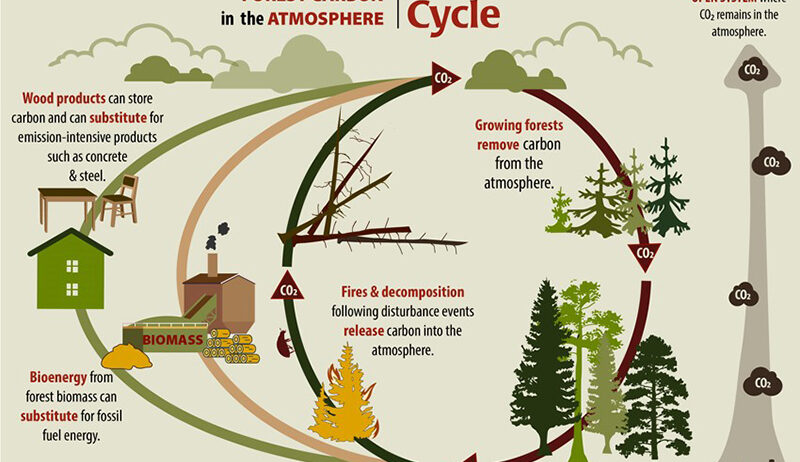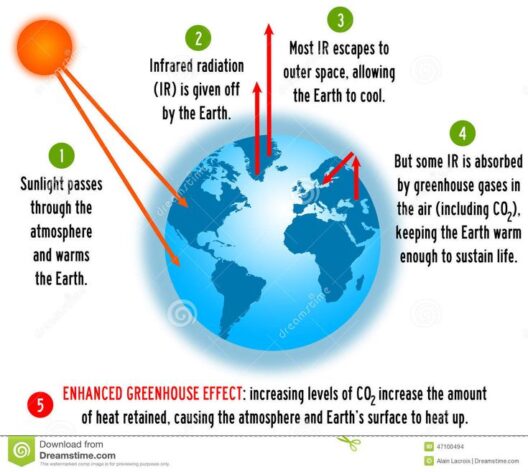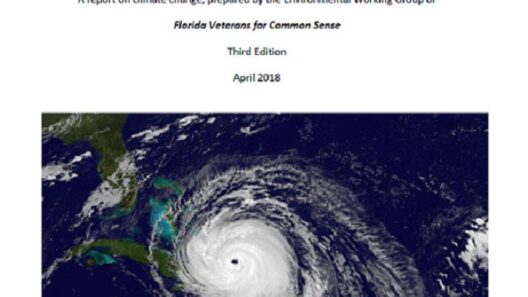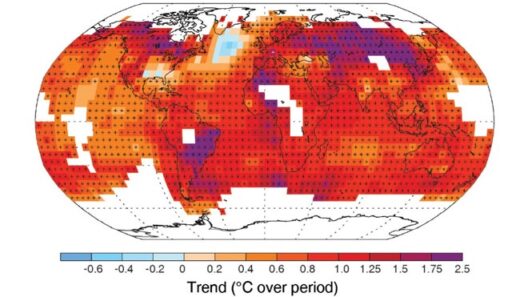Deforestation, the large-scale removal of trees from forested areas, has emerged as a significant environmental crisis, triggering a cascade of repercussions that extend far beyond the immediate landscape changes. While the visual impact is evident—once vibrant and thriving ecosystems reduced to barren terrains—the hidden costs of this phenomenon echo in the very atmosphere we breathe. Not only does deforestation contribute to habitat loss, but it also plays an insidious role in exacerbating global warming.
The tree population worldwide is not merely a collection of flora; they are a vital component of Earth’s climate system, acting as carbon sinks that absorb carbon dioxide (CO2) from the atmosphere. When forests are cleared, this balance is disturbed, releasing stored carbon back into the atmosphere and significantly increasing greenhouse gas concentrations. The following examination highlights the dire implications of deforestation on global warming, exploring the interconnectedness of forest health and climate stability.
We often perceive forests as passive, unassuming entities. However, beneath their leafy canopies lies a dynamic interplay of biological processes that is intricately tied to the Earth’s climate system. Trees engage in photosynthesis, a process that converts CO2 into oxygen and biomass. This natural phenomenon not only mitigates the impact of anthropogenic carbon emissions but also fosters biodiversity, providing habitat for myriad species. When these ecosystems are dismantled, we witness not only a loss of biodiversity but an immediate increase in carbon emissions through the decomposition of biomass and the soil’s release of previously sequestered carbon.
The carbon cycle is drastically altered by deforestation, marking a departure from a balanced ecosystem to a precarious state teetering on the brink of collapse. As trees are felled, the released carbon accumulates in the atmosphere, trapping heat and accelerating the warming of our planet. This chain reaction is often referred to as a “feedback loop.” Higher temperatures can lead to more frequent droughts, wildfires, and storms, which further deplete forest areas. Thus, the act of deforestation exacerbates the very conditions that drive further forest loss, revealing a paradoxical cycle of environmental degradation.
As detrimental as the direct effects of deforestation are, they are compounded by socio-economic factors that often go unconsidered in the grand narrative of climate change. Rural communities frequently depend on forests for their livelihoods. The allure of agricultural expansion, logging, and land development seduces local populations into adopting practices that favor short-term gain over long-term sustainability. As forests dwindle, these economies become increasingly unstable, deepening poverty and prompting further environmental exploitation as communities scramble for alternative resources. This socio-ecological quandary invites a critical examination of our values concerning economic progress and environmental stewardship.
Concerning the tangible effects of deforestation on weather patterns, the destruction of vast forested regions also contributes to altered rainfall patterns. Forests are known to play a significant role in the hydrological cycle, influencing both local and regional climates. In their absence, areas can experience reduced rainfall, resulting in arid conditions detrimental to agriculture and water reserves. This change not only affects ecosystem health but also poses severe challenges for food security—a growing concern in an era marked by population growth and climate unpredictability.
The ethical implications of deforestation extend far beyond immediate localities. Tropical and temperate forests are often home to Indigenous communities whose cultures, livelihoods, and identities are intricately woven into the fabric of these ecosystems. The disregard for their rights in favor of industrial expansion unveils a stark reality: the fight against global warming is intrinsically linked to social justice. The concept of environmental justice serves to highlight that those who contribute least to greenhouse gas emissions—often Indigenous populations and developing nations—are disproportionately affected by climate change, bearing the brunt of its consequences.
Addressing deforestation requires a multifaceted approach, embracing not only the reforestation and afforestation of previously cleared lands but also the reform of agricultural practices. Regenerative agriculture, for example, emphasizes sustainable land-use practices that enrich soil health and increase biodiversity while minimizing deforestation pressures. Furthermore, promoting agroforestry—a system that integrates trees into agricultural landscapes—can enhance productivity and maintain carbon sinks while providing economic benefits to local farmers.
Global cooperation is paramount in mitigating the impacts of deforestation. International agreements such as the Paris Agreement aim to limit global temperature rise, but they must also encompass robust strategies for forest conservation and restoration. The preservation of existing forests is not merely an option; it is imperative if we are to meet climate goals and secure a stable future for ecosystems and humanity alike. Policies encouraging sustainable land use, financial investments in conservation, and support for Indigenous rights are vital to this endeavor.
The hidden costs of cleared forests extend into every facet of life on Earth. Deforestation is more than a local environmental issue; it is a pressing global concern that demands urgent attention and action. By recalibrating our relationship with forests—not merely as resources but as partners in our survival—we may yet mitigate the deleterious effects of climate change and secure a sustainable future for generations to come. The time has come to shift our perspective, recognizing that the health of our planet is intertwined with the health of our forests. Let the call for conservation resonate globally as we face this monumental challenge together.







